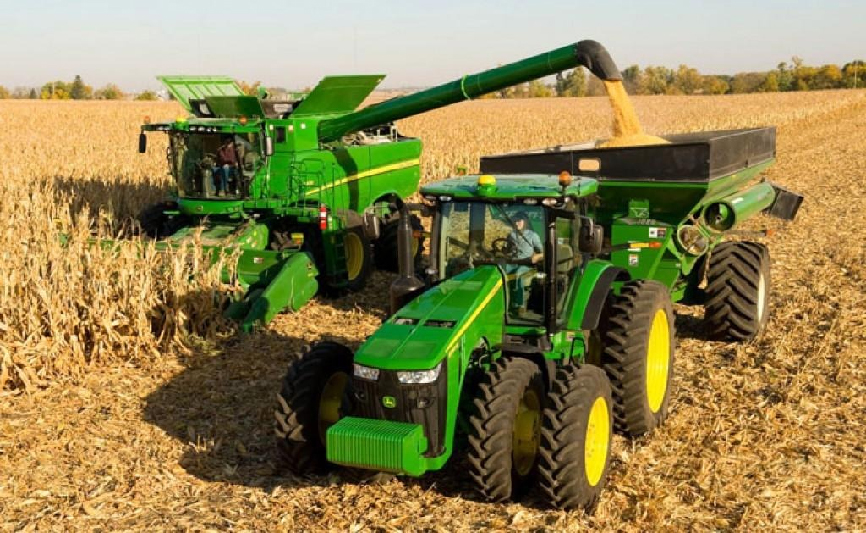
Farming as a Service- A promising model to explore!
Indian agricultural sector is characterized by presence of large number of small & marginal farmers and plays an important role in India’s economy. While India has become surplus in most agri-commodities, farmers have been unable to get better prices due to lack of investment in cold storage, warehouses, processing and export. The agriculture sector is also riddled with issues like low grade farming equipment and irrigation facilities. Towards the development of farmers, the Government of India has recently announced three ordinances (i) amendment to Essential Commodities Act (ii) barrier free trade (iii) Farmers (Empowerment & Protection) Agreement on Price Assurance & Farm Services Ordinance, 2020’ that can possibly transform the agriculture sector and unlock opportunities for investments.
Promoting new technologies to strengthen India’s agricultural research and productivity is one of the most important needs for agricultural growth. Farm mechanization is one aspect to give focus on to increase production and productivity. The overall farm mechanization in India has been lower at 40-45 % compared to other countries such as USA (95 %), Brazil (75 %) and China (57%). Income from farm can be multiplied if mechanization is in place and it helps in improving the farmer’s economic condition. However, farm mechanization in agriculture requires large scale availability of machines. Factors such as high initial investment, lack of awareness and low understanding pertaining to new technology are standing against the smart farming technologies to penetrate well in the country.
Moreover, small and marginal farmers are sceptical about returns from investments and are reluctant to show interests in these new techniques. This scenario has provided plethora of opportunities for services to set its roots in the country. Farming as a Service (FaaS) is one such idea that is gaining a lot of traction in the industry. FaaS model is the beginning of change where agriculture can be viewed positively and can be a profitable business for all. With the advent of FaaS and enabling government policies, India has witnessed an increase in the number of start-ups and an influx of funds to the sector. Venture Capitalists and investors have become more confident in the viability of these business models and the returns. FaaS can support to address the problems like inefficiencies across the agricultural supply chain, such as low productivity, lack of farm mechanization and access to markets. It converts fixed upfront costs into variable ongoing costs, thus making the approaches affordable for a majority of small and marginal farmers.
Solutions offered by this model are a mix of organized and efficient re-inventions of existing practices, combined with tech-driven innovations. The government is also actively pushing FaaS-based services through customer hiring centres (CHCs). The launch of CHC farm Machinery and Krishi Kisan App for Geo tagging by Union Minister for Agriculture and farmers welfare in September 2019, is an example of government initiatives which helps to reduce capital expenditure on farmers. However, such CHC centers would require huge investments to purchase machines, trainings and other related activities to provide ample services to the farmers. Currently, FaaS services can be made available on a subscription or pay-per-use basis under three broad categories. 1) Farm management solutions 2) Production assistance 3) Access to markets. Coordination between all the direct stakeholders (start-ups, investors, governments and corporations) and indirect stakeholders (local entrepreneurs, equipment suppliers, agronomists and IT vendors) is critical for the success of FaaS. Addressing the key structural challenges, such as the lack of infrastructure, technology and financing, is crucial to realize the concept’s full potential. FaaS based services can also increase adoption of digital technology since these services will be available through mobile, apps and web. This can help in the creation of large scale database of farmers, collection of data from farmers’ fields over a period of time and enables the stakeholders to make data driven and precise decisions to boost productivity and efficiency. Private sector also plays an important role in redefining the agri sector through innovative solutions such as Big Data and FaaS and make it more efficient through improved access to technology, capital and entrepreneurial skills. To summarize, FaaS hopes to drive much-needed process and product innovations in Indian agriculture. Increased investments in custom hiring centers for farm equipment, technology driven solutions, improving infrastructure such as cold storage areas and promoting digital transactions will make the FaaS model more successful in India.
Author

 Grow Beyond
Grow Beyond 

